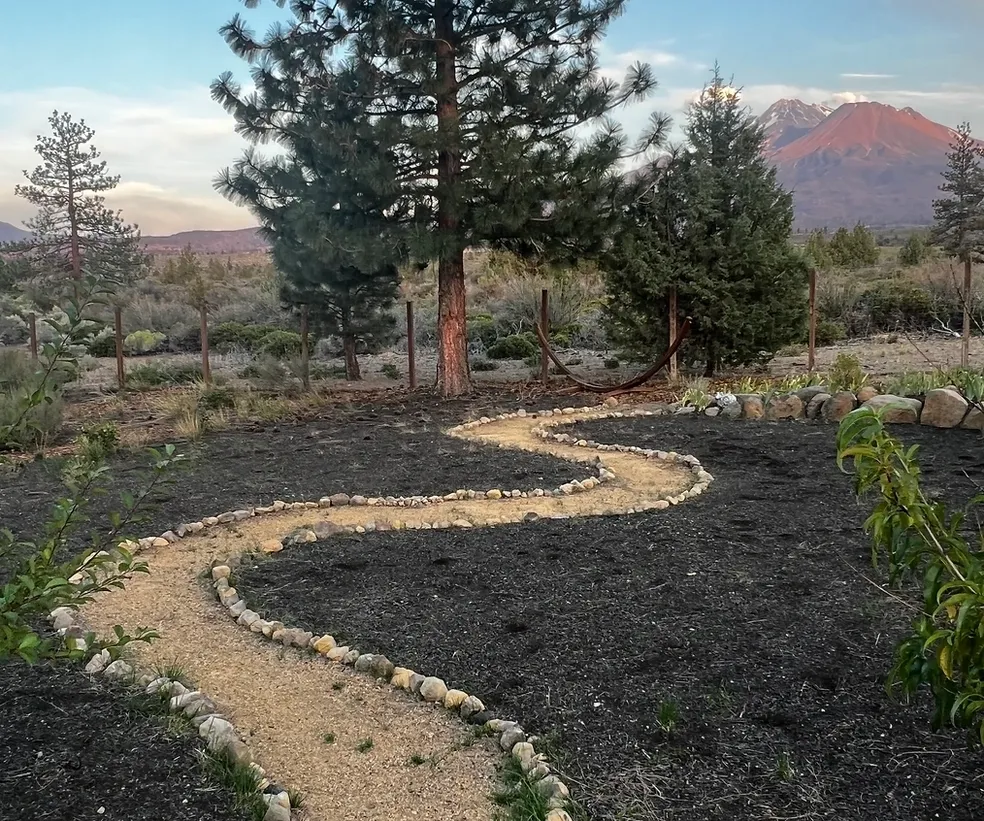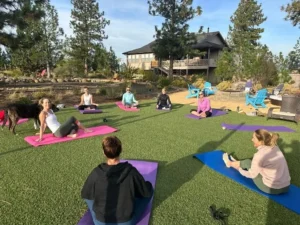The Life-Changing Health Benefits of Meditation
In our modern, fast-paced society, stress has become an inescapable part of daily life. From work pressures and family obligations to financial worries and global crises, we are constantly bombarded with triggers that activate our body’s stress response system.
However, when this primal “fight-or-flight” mechanism remains stuck in the “on” position due to chronic stress, it can wreak havoc on our physical and mental well-being. Prolonged exposure to stress hormones like cortisol can suppress immune function, increase inflammation, and heighten the risk of numerous chronic diseases, including heart disease, diabetes, and even neurodegenerative conditions like Alzheimer’s.
As renowned stem cell biologist Dr. Bruce Lipton explains, “The biochemicals called stress hormones were designed to prepare your body for emergency events. However, if they’re raised for extended periods, they can deplete and damage your body.”
Herein lies the extraordinary power of meditation – an ancient practice that offers a scientifically validated antidote to the detrimental effects of chronic stress.
Vedant Mount Shasta Retreat Newsletter

 | One of the primary mechanisms through which meditation promotes well-being is by inducing a state of deep relaxation and promoting balance within the brain. Regular practice has been shown to increase activity in the prefrontal cortex, the region responsible for higher-order cognitive functions like decision-making and emotional regulation. |
At the same time, meditation decreases activity in the amygdala – the brain’s “fear center” – leading to a diminished stress response and greater emotional stability. This counteracts the typical stress-induced pattern of heightened amygdala reactivity and impaired prefrontal cortex function, which can contribute to anxiety, depression, and impulsive behavior.
Exploring the Depths of Patanjali’s Yoga Sutras
 | In embracing the wisdom of the Yoga Sutras, one engages with more than an exercise form; one engages with a way of life. The discipline of yoga, as elucidated in these verses, is not simply about physical postures but about cultivating a tranquil mind and an awakened heart. Each sutra is a step on the ladder of spiritual ascent, leading the yogi towards the ultimate freedom of the spirit. |
The ancient text of the Yoga Sutras, authored by the sage Patanjali, commences with a profound section known as Samadhi Pada. This chapter lays the foundational principles of yoga, serving as a compass for those on the spiritual path. A series of aphorisms, or sutras, unfolds the intricate tapestry of yogic discipline aimed at reaching transcendence or Samadhi. Here, we delve into the first few verses that introduce this journey.
Meet Dr. Indranill Basu-Ray

PHYSICIAN, SCIENTIST, VEDANTIST, SPIRITUALIST, MEDITATOR, YOGI
Dr. Indranill Basu-Ray is a renowned Indian American Cardiologist and Interventional Cardiac Electrophysiologist, and the Founder and Chairman of the American Academy for Yoga in Medicine. His research and accomplishments in bringing the spiritual practice of Yoga into the world of cardiology has been published in such publications such as the Times of India, Daily O, Huffington Post, and Science India Magazine.
Dr. Indranill Basu-Ray has taught meditation to hundreds of interested people all over the world. He was also one of the Cardiologists who wrote down the practice guidelines for the American Heart Association. He is invited to talk about the science and the art of meditation from all over the world.
Advanced Meditation Workshop & Retreat

This retreat is not merely an escape but a deep dive into the practices that monks in India have used for centuries to achieve a powerful brain and an ageless body.
Discover the art of whole-being wellness with our Train the Brain Retreat – an immersive experience that combines ancient wisdom with modern scientific understanding to foster a powerful mind and a disease-free body.
A Meditiation Retreat with Dr. Indranill Basu-Ray
Train the Brain Retreat
Discover the art of whole-being wellness with our Train the Brain Retreat – an immersive experience that combines ancient wisdom with modern scientific understanding to foster a powerful mind and a disease-free body.
Exploring the Mind and Mysteries of Mount Shasta
The Mount Shasta region is a true paradise for outdoor enthusiasts, offering a breathtaking tapestry of natural beauty and endless opportunities for exploration. This majestic peak, towering at an impressive 14,179 feet, serves as the centerpiece of a vast wilderness area that attracts hikers, climbers, and nature lovers from around the world.
For those seeking to immerse themselves in the awe-inspiring landscapes, the Mount Shasta area boasts an extensive network of hiking trails that wind through pristine forests, alpine meadows, and crystal-clear lakes. The Pacific Crest Trail, one of the nation’s most famous long-distance hiking routes, runs directly through the region, offering stunning vistas and the chance to spot a diverse array of wildlife, including black bears, deer, and the elusive wolverine.
One of the most popular hiking destinations is the Panther Meadows Loop, a moderate 7-mile trail that offers panoramic views of Mount Shasta and the surrounding peaks. Along the way, hikers can marvel at the vibrant wildflowers that blanket the meadows in the spring and early summer months.
Beyond hiking and climbing, the Mount Shasta area is a mecca for other outdoor activities, such as fishing in the crystal-clear lakes and streams, kayaking or canoeing on the serene waterways, and even horseback riding along scenic trails.
Mount Shasta Orion Retreats

 | Growing up in Shasta, Dawson got a real feel for the place. His dad was a teacher and used to take him around, explaining all the cool stuff about rocks and history. Dawson learned that different places have different vibes – like some places are supposed to have special healing powers, while others are sacred to certain groups of people. |
But Mount Shasta is something else for Dawson. He says it’s not just a mountain; it’s like home to him. And he’s noticed something interesting: people get kinda stuck on Shasta. It’s like the mountain has this strong energy that makes you think a lot. Dawson thinks it’s a never-ending puzzle to figure out what it all means.
Guide to Eating Well as You Get Older
Hey there, folks! So, as we get older, our bodies need different stuff to keep us going strong. But don’t worry, eating healthy can be fun and delicious! Let’s dive into some easy-to-follow tips and tasty recipes to keep you feeling fantastic.
Understanding Your Food Needs
Okay, so first things first. We wanna eat a little bit of everything to keep our bodies happy and healthy. That means:
1. Mix It Up: Try different foods from all the food groups. Veggies, fruits, grains, dairy, protein – the whole gang!
2. Watch Out for Sneaky Stuff: Keep an eye on added sugars, bad fats, and salt. They can mess with your health if you eat too much.
3. Protein Power: We need protein to keep our muscles strong. Think seafood, dairy, beans, and nuts – they’re like little muscle builders!
4. Veggie & Fruit Fun: Add some color to your plate with sliced veggies and fruits. They’re packed with good stuff like vitamins and fiber.
5. Vitamin Boost: Get your B12 from cereals or maybe a supplement. It’s good for your energy levels and keeps your blood healthy.
6. Shake the Salt: Use herbs and lemon juice instead of salt to flavor your food. It’s way healthier and tastes awesome.
7. Stay Hydrated: Don’t forget to drink water! It helps your body work right and keeps you feeling fresh.
Yoga for Mental Health
- Yoga offers a holistic approach to mental well-being, addressing the intricate interplay between mind, body, and spirit. Its practices, from asanas to meditation and pranayama, offer a multifaceted solution to the challenges of mental health. By fostering self-awareness, resilience, and emotional equilibrium, yoga empowers individuals to navigate life’s ups and downs with grace and strength.
- Yoga transcends physical exercise, serving as a cornerstone for mental health. It harmonizes the mind, body, and spirit, offering a sanctuary for those navigating the complexities of modern life. This article delves into yoga’s profound impact on mental well-being, spotlighting poses and practices that fortify the mind-body connection.
